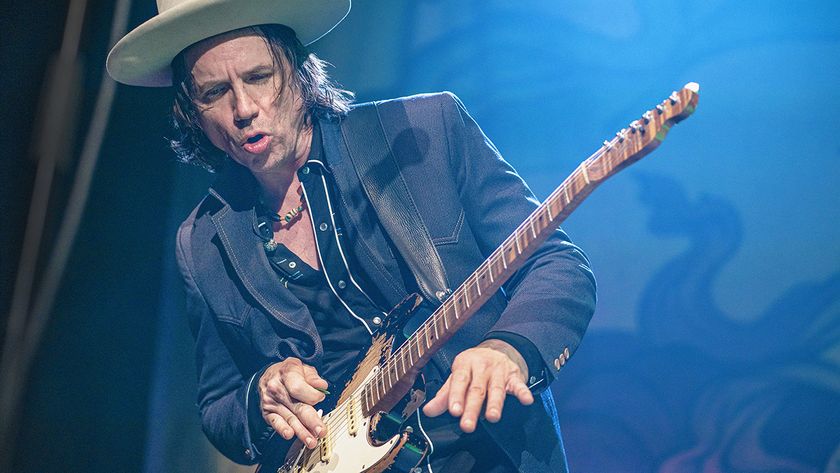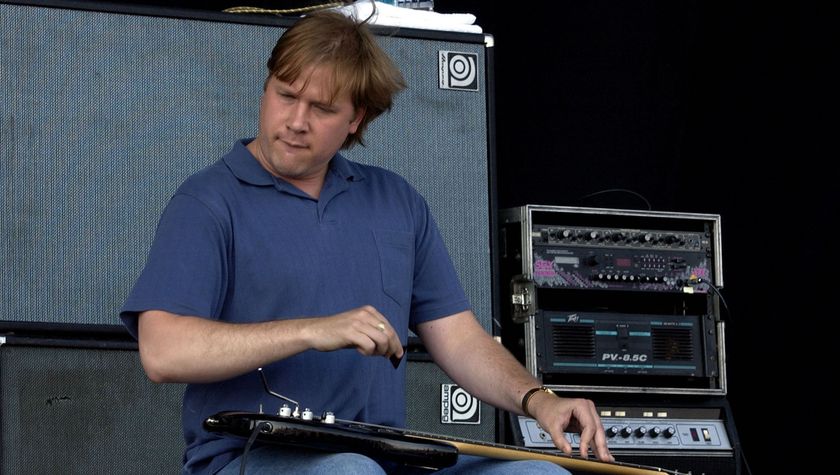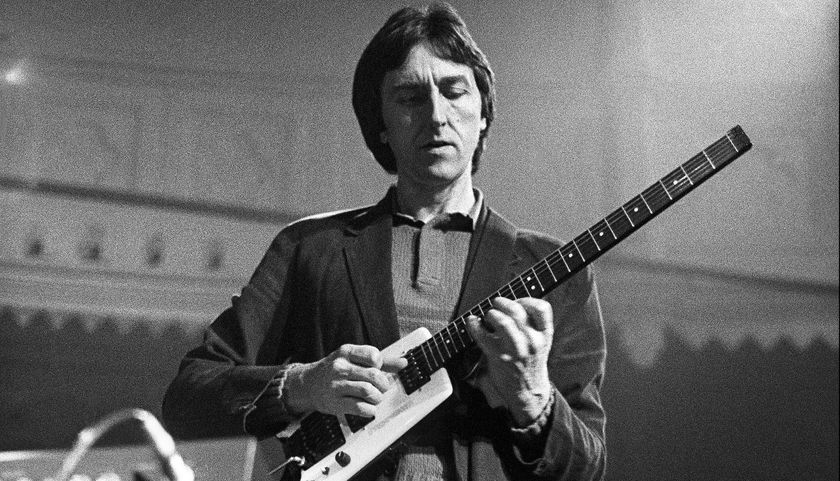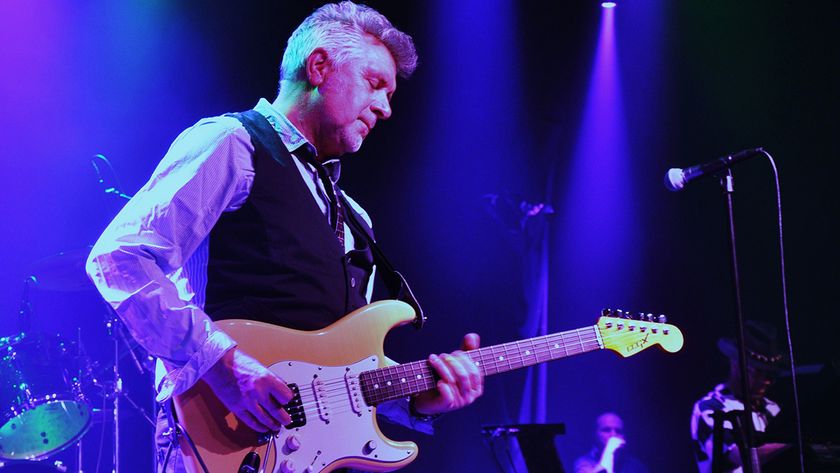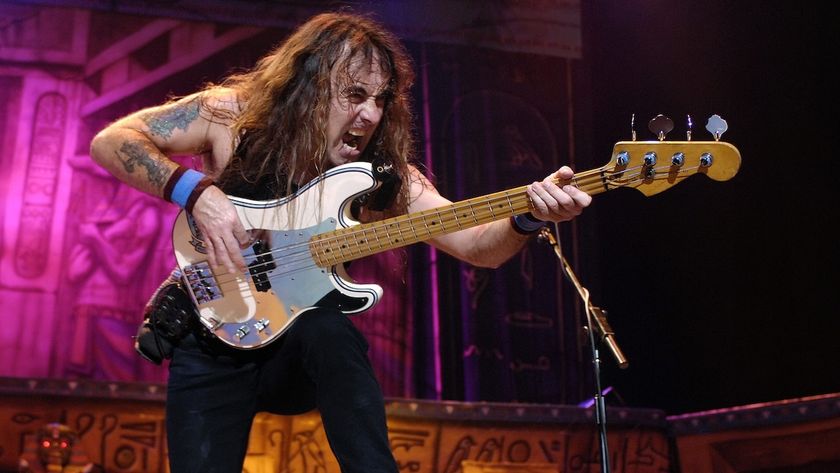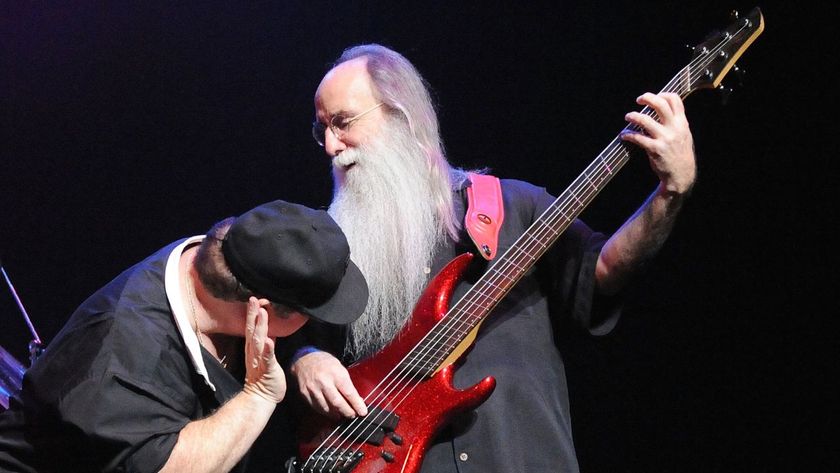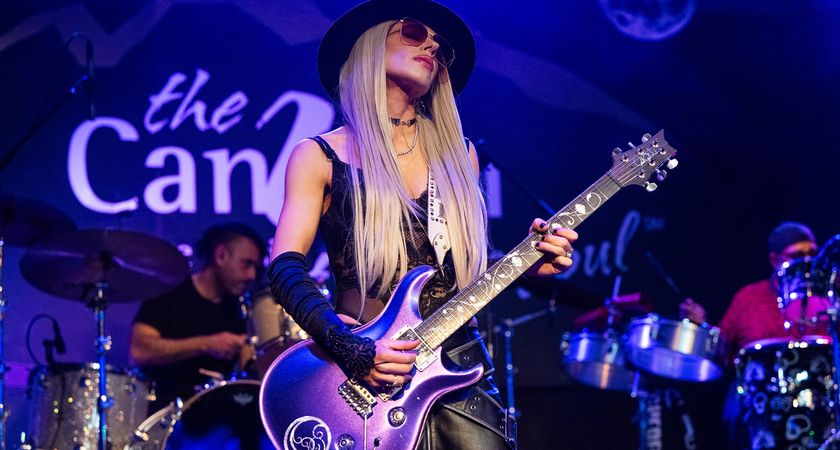Mike Keneally on working with Frank Zappa: “My mind was being blown on a daily basis”
The guitarist details how his stint with Frank Zappa's band in the late '80s was his “first professional music experience of any kind”
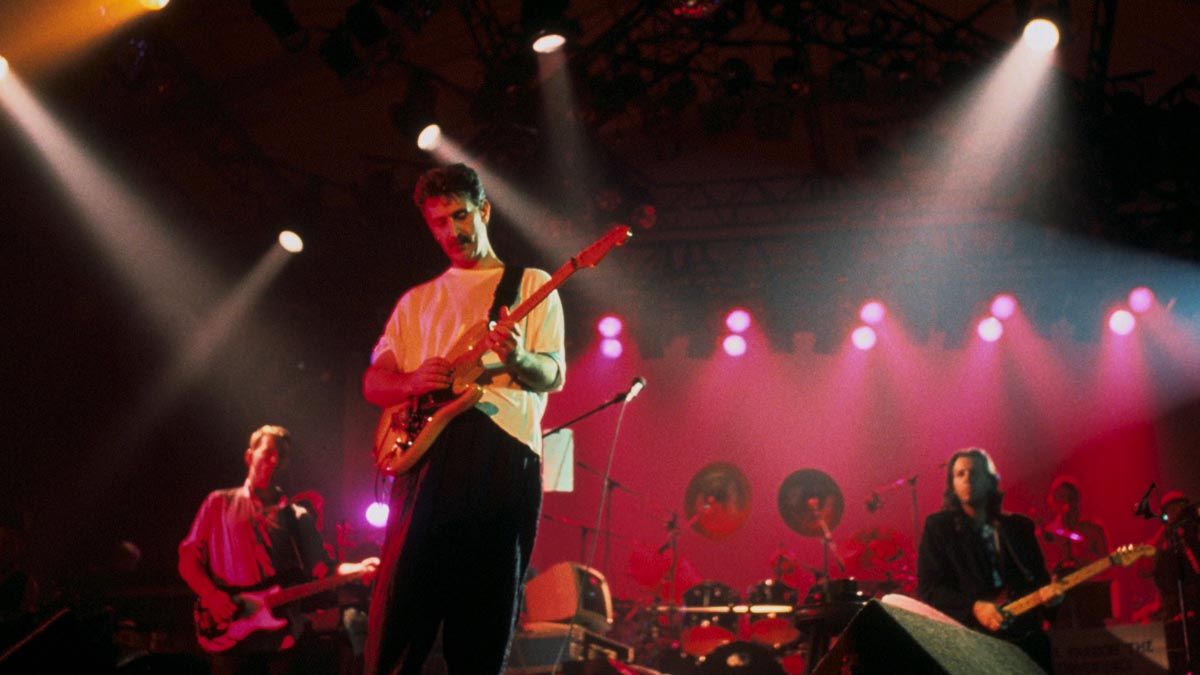
It’s amazing to think that the guitar isn’t Mike Keneally’s first instrument. He originally approached Zappa to audition for keyboards, but finding that role already filled he decided to go for the guitar position instead.
Having proved to Frank that he could handle the most complex music thrown his way, Mike joined Zappa’s band for the 1988 tour.
When you first started the tour, how did you manage the leap from keyboard to guitar?
“I quickly had get up to speed. It’s not just executing notes on an instrument, which was kind of the way I approached it at the time, because as a keyboardist initially, I sort of conceptualise the fretboard as just like a different version of a keyboard.
“So for me to play guitar with Frank at that time was like 90 per cent about executing parts and not really getting into the way personality can be conveyed with a guitar. If you listen to what I play on those on those live recordings from 1988, it’s much more about being an ensemble member.”
Another startling fact about your tenure with Zappa was that it was your first pro gig.
“I had done such a small amount of playing with large bands, or any kind of live playing on a large scale at all, I had to come to terms with everything at once. So if I could just cut the parts in some form on the guitar, I consider that a success.
Get The Pick Newsletter
All the latest guitar news, interviews, lessons, reviews, deals and more, direct to your inbox!
“If it were possible to go back and do those shows again with some portion of the knowledge I have now about guitar playing specifically, things would come off differently but not necessarily better!”
Your in-depth knowledge of Zappa’s back catalogue proved to be invaluable during rehearsals, didn’t it?
“If Frank wanted to play some song that he hadn’t played in a long time, he might say, ‘We haven’t played Who Needs The Peace Corps? for 20 years,’ and then he would just turn and look at me and I’d start playing it. So the fact that I was able to provide that service I think is more valuable to what was accomplished on that tour musically than anything specifically about guitar.
“Although I got lucky on occasion with some of the guitar playing. There are some nice moments on the [live] albums, but it’s certainly nothing compared to what Steve [Vai] had going on in terms of the impact that he made as a guitarist.”
Zappa was famous for a putting his bands through a punishing pre-tour rehearsal schedule. What was that like?
“Heaven! Because I personally couldn’t imagine anything that I would rather spend the day doing than playing Zappa music. You’ve got to realise that I came from more of a fan perspective than a lot of guys who would get in the band, where it really would just be tiring grunt work.
“But not only was I a huge Zappa fan, it was also my first professional music experience of any kind. So my mind was being blown on a daily basis, eight hours a day, five days a week for four months of pretty much sustained bliss.
“33 years later, I can look back and understand why somebody might get fatigued. I’m a lot more sympathetic to that, but I still think, ‘You know what? What a blessed situation to be in,’ and that overrides anything else. There aren’t that many times in life where you can say, ‘I’m in rehearsal with Frank Zappa, playing his music.’”
What was the most demanding piece that you had to learn for the ’88 tour?
“The first one that comes to mind is Alien Orifice because there’s a long patch in the middle that actually wasn’t even played by guitar on the original recording, but Frank decided he wanted to change up the orchestration.
“It was just a barrage of fast 16th notes and he wanted it to be clean, bassy-sounding guitar, played along with the vibraphone and piano. So I just had to learn this thing and it is the type of part that you just have to drill it and drill it and drill it, and you can’t afford to think about it. It has to be complete muscle memory. Giving an ounce of energy to what the next note is supposed to be, you’re going to lose it.
“Bob Rice, who was the Synclavier tech on that tour, would keep a running tally on my executions of that song and any time I did okay, he would come up after the show and go, ‘Nice Alien.’ That was the only thing that was in the back of my mind: trying to elicit a ‘Nice Alien’ from Bob Rice after the show.”
How did the experience of such intense rehearsing translate into actually getting on tour and playing the material live?
“There were certain songs that we drilled constantly while we were rehearsing in Los Angeles. I’m thinking in particular of a song called Jezebel Boy, which is not anything that requires rehearsal except for the fact that it involved a certain amount of improvised vocal stuff. And I think Frank just liked playing it. We’d get back from dinner break and Frank would say, ‘Jezebel Boy’, just because he enjoyed it. He and I could get into different improvised stuff every time we played it.
“On the road, we played it one time. We fucked it up. And that’s the version that’s on Broadway The Hard Way, because it was the only version that Frank had to choose from. But I just thought, ‘How strange that we played this song relentlessly in rehearsal.’”
I used to dream of playing in Frank’s band, so the fact that it was finally happening, I opted to just be grateful for it
What would be your most memorable moment from the tour?
“I used to dream of playing in Frank’s band, so the fact that it was finally happening, I opted to just be grateful for it. The night before the tour started, I was panicking because I’d never done anything like it. I was home, unable to sleep, thinking that even though I’d just rehearsed for four months, I didn’t feel like I belonged – I felt unworthy somehow.
“Frank may have sensed something about what I was going through because on the first show in Albany, New York, he kept going to me in the second set and having me do things, improvise on guitar and vocal and keyboard simultaneously, you know, all this stuff.
"And when we came out for the encore Frank says, ‘Mike Keneally, ladies and gentlemen!’ and I was feeling like I belonged there and apparently Frank felt the same way, so I felt really validated from that moment and for the rest of the tour I just relished every opportunity to perform.”

“They said, ‘The Ace Hotel have you on camera leaving with the guitar.’ I was like, ‘I thought it was a gift!’” Machine Gun Kelly on the time he stole a cheap Martin from a hotel – and was billed $5,000

“I had never done that before. I thought Jimmy was going to go, ‘Nice one’ – he looks at me and goes, ‘Don’t you ever do that again’”: That time Chrissie Hynde enraged one of her Pretenders bandmates because she stopped playing mid-gig

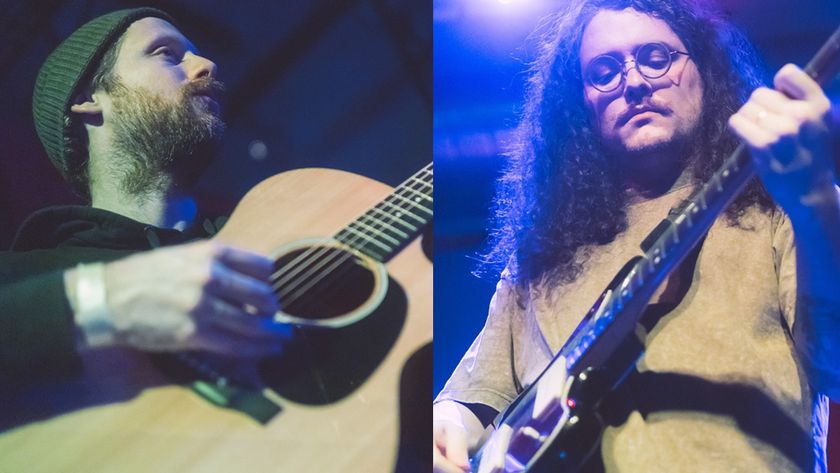

![The Grateful Dead: Pigpen [left] and Jerry Garcia in action at Santa Clara County Fairgrounds in San Jose, May 18, 1968.](https://cdn.mos.cms.futurecdn.net/SiXNMdzjN4PJYWg6TaRqwg-840-80.jpg)
